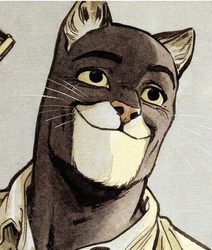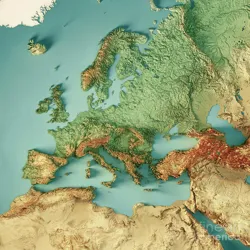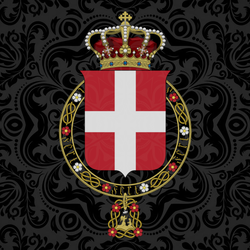siema kto pl
Cześć!
Jak to jest być
skrybąna fedi?
J’adore ce post. Vraiment j’adore. L’anglais c’est sympa pour communiquer, mais qu’est-ce que c’est amusant de croiser une multitude de langues comme ça !!
My native language is German, I speak English, some Italian and written Latin, no French. Here’s my interpretation of your comment:
I like the post. I really like it.
SomethingEnglish is goodfor the community orfor communicating, [German word for corn, …] because (but?) it is fun to enjoy a multitude of languages [random Turkish letter].Probably the second part of the sentence isn’t about English helping to enjoy languages, nevertheless English is just good for communicating.
Words which helped me:
J’ => You => Some person => Probably I
andore => English adorable
post => English post
Vraiment => Italian veramente
L’ => An article similiar to the Italian ones => Word after it is a noun
anglias => Italian Inglese => English?
c’est => it is (est in Latin)
sympa => German Sympathie/English sympathy
pour => Italian per
communiquer => Latin communis, word ending weird, but probably a verb (German kommunizieren)
c’est = again “it is”
amusant => German amüsieren
de => Italian di (de in some forms)
croiser => German/French Connaisseur
une => Italian una, but as plural (non-existent in Italian)
multitude => English multitude (Latin multi)
de => Italian di again
langues => English language or Italian lingua
comme => Latin communis stuff again???
ça => What, Turkish?!
Bon travail !
English explanations:
- L’ is “Le” (when followed by a word beginning with a vowel), so “The” as you expected yeah
- Anglais : English (either the language or the people, here about the language)
- Sympa : Yeah, comme from Sympathy, but here meaning like “Fun”
- Communiquer : Like English Communicate. The end in “-er” mark it as a verb, like in English adding “To” before: “To communicate”
- Croiser : Similar to English: to Cross (here meaning “gathering together at the same place” or smthg)
- Une : Singular form here yes. “une multitude” is a strangely singular word, meaning to talk about a lot of things as one single group
- ça : means “it” in French. The thing under the c (cédille: ç) like in Turkish, is to make it sound like “s” instead of default prononciation sounding like “k”
Tu nous fais un petit poème en verlan ?
Téki ou tékipa, c’est le dilemme frère !
L’alpha c’est ki gros ? C’est la viktim des cheu-ri kon vla dla thune, ou le chanmé qui dit nik la douleur en fumant sa grand mère aux gangs de rebelles ?
Vé-cre… Pioncer, y’a qu’ça d’vrai… T’in ça m’a tellement saoulé vas-y j’en ai plus rien à foutre des meufs et d’ma vie gros. En vrai de vrai c’est trop grave, mais j’préfère ça
Vé-cre… Pioncer; pioncer, halluciner. Wesh c’est ça le blème en fait !
Ah ha ! Tu l’a fait. J’y crois pas.
C’était pas du gateau, je suis pas habitué xD C’est très certainement très très caricatural et absolument faux dans l’usage (tel le vieux schnock qui tente de parler comme les “jeun’s”). Mais ça m’a bien amusé. à refaire.
NEIN!
elk zijnen dag!
Ça s’est du néerlandais ! En tout cas, ça ressemble beaucoup à ce qui est écrit sur mes paquets de céréales.
ontbijtgranen!
J’ai tout compris ! On est par encore sur une compréhension fluide mais on s’en rapproche.
Dat is een manier om dat te zeggen
Als ze het maar niet gaan ondertitelen
Таке питання українцям (якщо ви тут є)), де ви знаходитесь?? Я сам вчу українську і дуже хочу знайти форуми чи щось де українці спількуються як Lemmy чи Reddit. Мне здається всі в телеграмі, але як взагалі найти групи і людей там якщо неможливо шукати контент в телеграмі на Гугл? Дякую!)
Har ikke sett noen prate norsk i tråden, så hallo!
Det er dusinvis av oss!
Muito lindos! Está aqui uma torre de babel do caralho.
Vá lá, mais um tuga! Já somos dois no fediverse
Oi malta
Chamaram?
Edit: quem foi o morcão que me deu um bota-abaixo? Mas isto é o r/portugal ou quē? Foda-se, já não se pode sair à rua
Ciao a tutti, questa è una semplice frase in italiano. Se avete domande sulla lingua italiana non esitate a chiedere (domandare).
Al contrari sta-sì a l’è un-a frase an piemontèis. Ël Piemont a l’è la region ëd Turin.
Pas besoin de traducteur tellement nos langues sont proches. Mais heureusement que tu as donné un synonyme pour chiedere, j’aurais pas trouvé (enfin si, probablement, grâce au contexte)
Même le piémontais on comprend. L’orthographe est surprenante !
Ho scritto “domandare” e “non esitate” (n’hésitez pas) sperando di aiutare i francesi! La forma per me più spontanea è semplicemente “se avete domande chiedete pure”
Riguardo il piemontese: O si pronuncia come in francese ou (tout), ma Ò con l’accento si pronuncia o (bon); U si pronuncia come in francese u (lune); Ë è qualcosa di simile al francese eu (feu) o œ (cœur). Certi aspetti sono simili al francese, come l’uso (utilizzo) di “pa” nella negazione (come in francese “pas”), o tante parole (fr. mots) per esempio “travajé” (it. lavorare) o “sapin” (it. abete) o “parèj” (it. così) o “mersì” (it. grazie)… fr “viens ici” -> pms “ven sì” -> it “vieni qui”
Voglio imparare (apprendere) il francese decorosamente (decentemente). Capire (comprendere) lo scritto è facile, ma nel parlato metà delle lettere spariscono, è difficile!
Tu sais si bien expliquer aux français je pensais que tu étais bilingue !
Ça me plaît vraiment comme langue, et cette petite leçon me donne envie de m’y mettre.
lo scritto è facile, ma nel parlato metà delle lettere spariscono, è difficile!
J’ai eu un peu la même réflexion ; ça ressemble mais sans toutes les lettres inutiles du français
Ce fil me rappelle cette vidéo : Occitan vs French vs Italian vs Catalan | Can they understand each other?
je pensais que tu étais bilingue
Purtroppo (fr malheureusement) non sono bilingue. In montagna, sul confine (frontiera) gli escursionisti (fr randonneurs) francesi mi raccontano le loro avventure - perché conversano sempre (fr toujours) con me? Ho vestiti particolari? Un viso particolare? Non so. - Allora io dico “désolé, je suis italien”. Allora loro ricominciano lentamente o in inglese.
me donne envie de m’y mettre
Se mettre au piémontais? Attenzione: recentemente qualcuno modifica l’ortografia per farla più simile all’italiano. Pessima (malvagia) idea. Su Wikipedia fr c’è l’ortografia esatta, è un buon punto di partenza. Camillo Brero (an piemontèis Milo Bré ) era il migliore studioso (specialista) contemporaneo, e ha redatto il migliore libro di grammatica
me rappelle cette vidéo
Domanda (questione) n° 2: italiano “bandiera” ok, ma in piemontese è “drapò”!









